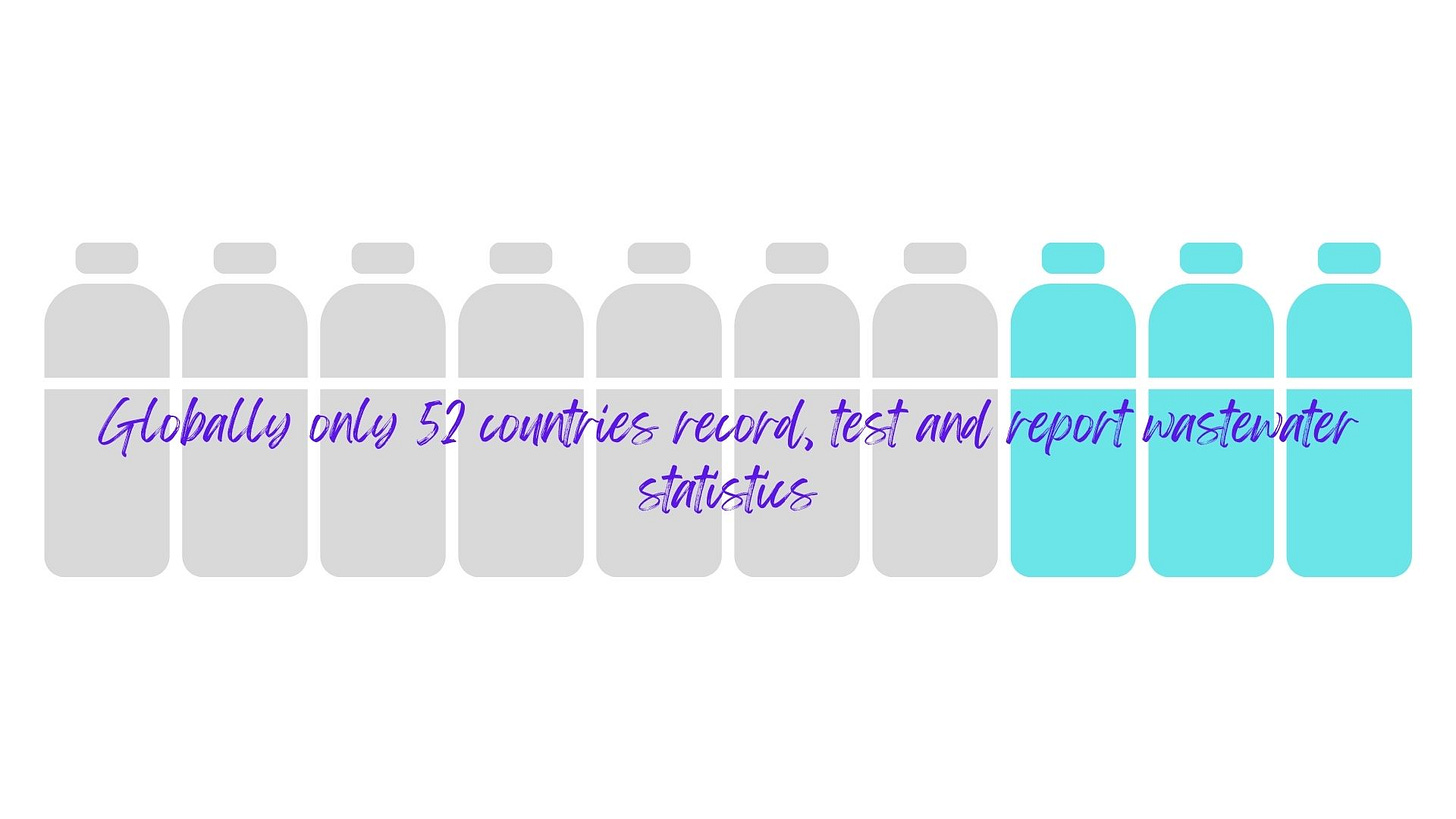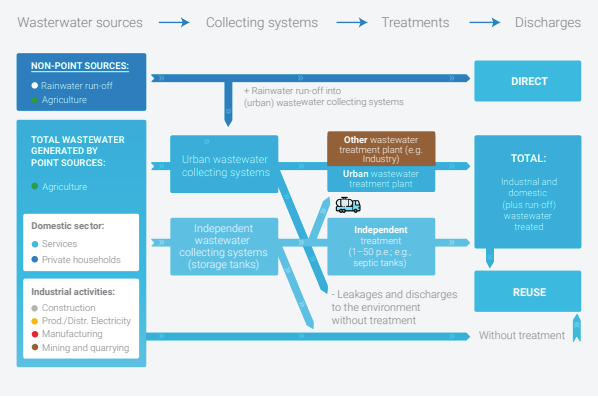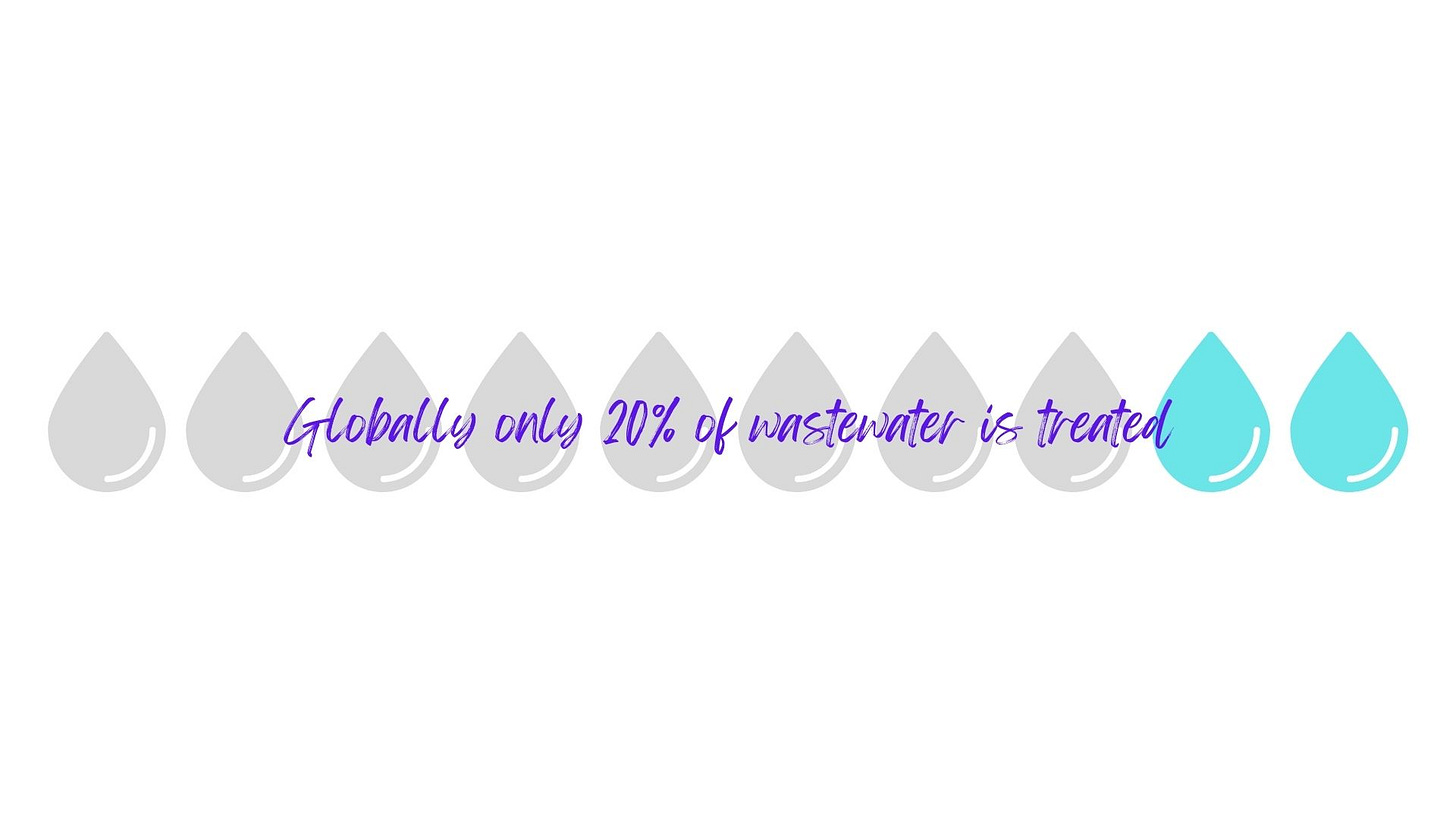Wastewater Opportunity & a Co-Founder Role
Is there money in the cesspool (literally)
If you are looking for the job opportunity, here it is…. An early startup at the overlap of climate, water, IOT, and industry 4.0/smart manufacturing is looking for a co-founder. They help wastewater utilities decarbonise by building a real-time energy management platform and design tool specifically for the wastewater industry. The ideal candidate is a software developer, with experience launching a startup, but they are open to non-technical folks as well. If this sounds like you - get in touch with Jose Bolorinos.
Wastewater treatment is a crucial process for protecting public health and the environment. However, traditional wastewater treatment systems are energy-intensive, contributing to greenhouse gas emissions and exacerbating climate change. In recent years, there has been a growing interest in decarbonising wastewater systems, which involves reducing the carbon footprint and energy consumption of wastewater treatment. But first of all, what is in the wastewater?
Unfortunately we have facilities to record, test, and report statistics on wastewater in only 52 countries. That’s a definite opportunity if you are looking at tech to measure, analyse and report that. Here, I am talking about a data asset that is currently only available to a small number of countries. Would you invest in this?
If you’ve read so far, that means you would like to get a deeper understanding….isn’t it? Even if they didn’t detect what’s in the sewage pipes, many countries have regulations that place emphasis on industrial effluents, but largely household wastewater is untreated. Wastewater treatment is one of the most carbon intensive systems when you look at it as per litre of water that passes through it.
Decarbonising wastewater systems can bring about numerous benefits, both for the environment and for the economy. One of the main advantages is a reduction in greenhouse gas emissions, as decarbonisation involves transitioning to renewable energy sources and improving energy efficiency. This can help to mitigate the impacts of climate change and promote a low-carbon economy.
Another benefit of decarbonisation is the potential to reduce the operational costs of wastewater treatment plants. By implementing energy-efficient technologies and renewable energy sources, wastewater treatment plants can reduce their dependence on fossil fuels and lower their energy bills. This can free up resources for other important initiatives, such as upgrading infrastructure and improving water quality.
Finally, decarbonisation can also help to promote innovation and create new job opportunities in the wastewater sector, like the one I posted above.
There are several strategies that can be used to decarbonise wastewater systems, depending on local conditions and priorities. One common approach is to implement energy-efficient technologies, such as advanced aeration systems or high-efficiency motors and pumps. These can help to reduce energy consumption and lower greenhouse gas emissions.
Another strategy is to transition to renewable energy sources, such as solar, wind, or hydroelectric power. This can involve installing solar panels or wind turbines at wastewater treatment plants, or purchasing renewable energy from off-site sources. In some cases, excess energy generated by the wastewater treatment process itself can also be captured and used to power other facilities or feed back into the grid.
Finally, decarbonisation can also involve implementing green infrastructure solutions, such as constructed wetlands, rain gardens, or green roofs. These can help to reduce the amount of energy needed for wastewater treatment by using natural processes to filter and treat wastewater. In addition, green infrastructure can offer a range of co-benefits, such as improving water quality, enhancing biodiversity, and reducing urban heat island effects.
As you can see, only 20% of wastewater is treated globally…can we increase that? Can we decarbonise the wastewater treatment process? I am interested in learning about your views on this. Join the chat to discuss…





